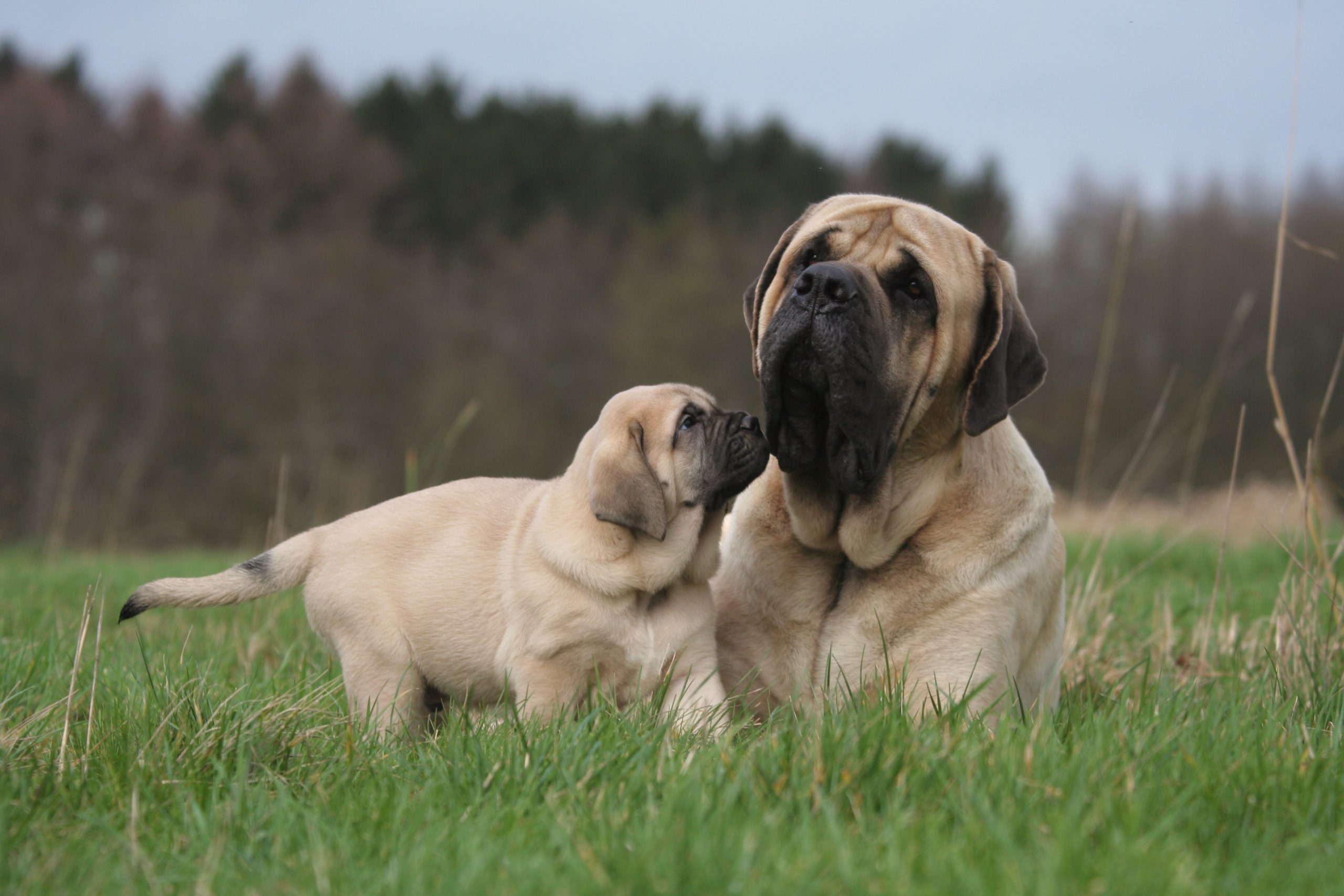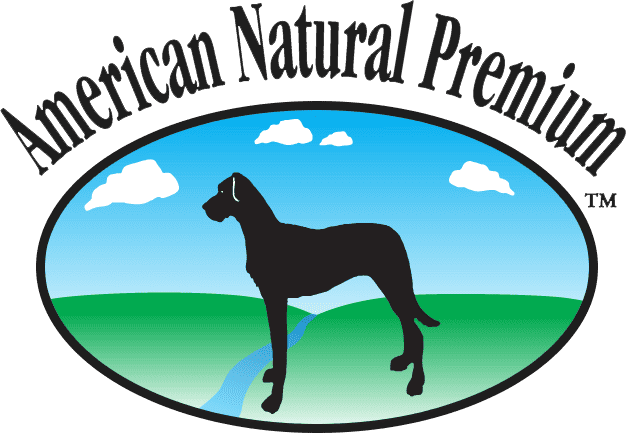Best Dog Food for English Mastiff

The English Mastiff stands as one of the largest and most impressive dog breeds in the world, with males often weighing 200-230 pounds and females typically 120-170 pounds. These gentle giants combine massive size with a calm, protective temperament, creating unique nutritional challenges that require careful consideration. Understanding what constitutes the best dog food for your English Mastiff is crucial for supporting their enormous frame while promoting longevity and preventing the health issues commonly associated with giant breeds.
Understanding the English Mastiff’s Unique Nutritional Profile
English Mastiffs present one of the most extreme examples of giant breed nutrition requirements. Their massive size requires careful dietary management throughout their lives, particularly during the extended growth period that can last up to 18-24 months. Despite their impressive stature, adult Mastiffs are surprisingly calm and have relatively moderate energy requirements compared to smaller, more active breeds.
Their enormous frame puts tremendous stress on their joints, cardiovascular system, and other organs, making weight management absolutely critical throughout their lives. Even small amounts of excess weight can have devastating effects on their mobility and overall health. Additionally, their deep chest and large size make them highly susceptible to bloat (gastric dilatation-volvulus), requiring specific feeding strategies to minimize this life-threatening risk.
The breed’s relatively short lifespan of 6-10 years makes every aspect of their nutrition critically important for maximizing both quality and quantity of life. Their gentle, calm nature often extends to their eating habits, though some can be picky eaters, particularly during hot weather when their massive size makes temperature regulation challenging.
Essential Nutritional Requirements for English Mastiffs
Controlled Protein Levels: English Mastiffs don’t require extremely high protein levels despite their size. Adult Mastiffs typically do well on 20-24% protein, which supports muscle maintenance without overtaxing their kidneys or promoting excessive growth rates. During puppyhood, protein levels should be carefully controlled at 22-26% to support healthy development without encouraging rapid growth that can damage developing bones and joints.
Moderate Fat Content: These gentle giants benefit from moderate fat levels, typically 8-12% for adults and 10-14% for puppies. This range provides adequate energy for their needs without contributing to excessive weight gain that could stress their joints and cardiovascular system. Their lower activity levels mean they require less concentrated energy than smaller, more active breeds.
Carefully Balanced Calcium and Phosphorus: Perhaps no nutritional aspect is more critical for English Mastiffs than proper calcium and phosphorus ratios. The ideal ratio is approximately 1.2:1 (calcium to phosphorus), with total calcium content not exceeding 1.5% in puppy food and 1.0% in adult food. Excessive calcium during growth can cause serious skeletal abnormalities and joint problems that plague giant breeds.
Joint Supporting Nutrients: Given their predisposition to joint issues, foods containing natural sources of glucosamine and chondroitin can be beneficial throughout their lives. These nutrients support cartilage health and may help maintain mobility as they age.
Highly Digestible Ingredients: To support their sensitive digestive systems and reduce bloat risk, English Mastiffs benefit from highly digestible ingredients that empty from the stomach quickly and require minimal digestive effort.
Best Protein Sources for English Mastiffs
English Mastiffs generally tolerate a variety of protein sources well, though their size makes any dietary changes particularly significant:
Lamb-Based Formulas: American Natural Premium’s Lamb Meal & Rice Recipe provides an excellent protein source that’s often well-tolerated by sensitive giants. Lamb offers high biological value with excellent amino acid profiles while being less likely to cause allergic reactions than more common proteins like chicken or beef.
Fish-Based Options: Fish proteins are highly digestible and provide beneficial omega-3 fatty acids that support joint health and coat condition. American Natural Premium’s Fish Recipe with Zucchini & Carrots offers these benefits while being gentle on sensitive digestive systems.
Novel Protein Sources: For Mastiffs with food sensitivities, American Natural Premium’s Duck Recipe with Butternut Squash provides an alternative protein that’s typically well-tolerated and easily digestible.
Easily Digestible Options: For Mastiffs with sensitive stomachs, American Natural Premium’s Sensitive Care provides carefully selected proteins with probiotics to support digestive health while being gentle enough for daily feeding.
Managing Giant Breed Health Concerns Through Nutrition
Hip and Elbow Dysplasia: These orthopedic conditions are extremely common in English Mastiffs. Maintaining optimal body weight throughout life is absolutely crucial for minimizing joint stress. During puppyhood, avoiding overfeeding and choosing foods with appropriate calcium levels helps ensure proper skeletal development.
Heart Disease: English Mastiffs are predisposed to dilated cardiomyopathy and other heart conditions. Their massive size puts tremendous strain on their cardiovascular system, making heart-healthy nutrition important. Diets rich in taurine, L-carnitine, and omega-3 fatty acids may support cardiovascular health.
Bloat Prevention: This life-threatening condition is extremely common in deep-chested giant breeds like Mastiffs. Prevention requires specific feeding strategies including feeding smaller, more frequent meals, avoiding exercise immediately before and after meals, and choosing easily digestible foods.
Bone Cancer (Osteosarcoma): English Mastiffs have one of the highest rates of bone cancer among all breeds. While nutrition cannot prevent this devastating disease, maintaining optimal body weight and supporting overall immune health through proper nutrition may be beneficial.
Kidney Disease: The strain of supporting such massive body weight can affect kidney function over time. Avoiding excessive protein and maintaining proper hydration becomes increasingly important as these dogs age.
Age-Specific Nutritional Strategies
Puppies (0-18 months): English Mastiff puppies require the most careful nutritional management of any breed. American Natural Premium’s Large Breed Puppy formula is specifically designed with controlled calcium and phosphorus levels appropriate for giant breed development. The goal is steady, controlled growth rather than rapid development that can cause skeletal problems.
Adults (18 months-6 years): Adult Mastiffs typically do well on maintenance formulas with moderate protein and fat levels. Their calm nature and lower activity levels mean they often require fewer calories per pound than smaller breeds, making portion control crucial.
Seniors (6+ years): Senior Mastiffs may benefit from easily digestible proteins, joint-supporting ingredients, and potentially reduced calorie content if activity levels decrease with age. However, maintaining muscle mass becomes increasingly important as they age.
Feeding Guidelines and Bloat Prevention
English Mastiffs typically consume 6-10 cups of high-quality dry food daily, but this massive amount should always be divided into at least three meals, with four smaller meals being even better for bloat prevention. The exact amount depends on age, activity level, and individual metabolism.
Critical Bloat Prevention Strategies:
- Feed 3-4 smaller meals daily rather than one or two large meals
- Use elevated feeding bowls to reduce the amount of air swallowed
- Avoid vigorous exercise for 2-3 hours before and after meals
- Add water to dry kibble to aid digestion and reduce gulping
- Feed in a calm, quiet environment to reduce stress-related eating
- Consider using slow-feeder bowls to prevent rapid consumption
Temperature Considerations: Mastiffs are heat-sensitive due to their size, and hot weather often reduces their appetite. During summer months, they may eat less during the day and prefer evening meals when temperatures are cooler.
Special Considerations for English Mastiffs
Growth Rate Management: English Mastiffs must grow slowly and steadily over their extended 18-24 month maturation period. Overfeeding during puppyhood can cause rapid growth that severely damages developing bones and joints. Monitor body condition obsessively and adjust portions to maintain a lean build throughout the growth period.
Exercise and Nutrition Balance: While adult English Mastiffs are calm, they still need moderate exercise to maintain muscle tone and joint mobility. However, their exercise should be carefully managed, especially during hot weather, and nutrition should support their moderate activity levels rather than high-performance demands.
Space and Feeding Environment: Their enormous size requires adequate space for comfortable eating. Elevated feeders, non-slip bowls, and quiet feeding areas help reduce stress and gulping that can contribute to bloat.
Cost Considerations: Feeding an English Mastiff is expensive due to the sheer volume of food required. However, choosing high-quality foods with excellent digestibility means more nutrition per cup and potentially better value despite higher upfront costs.
Monitoring and Adjusting Nutrition Throughout Life
Regular monitoring of your English Mastiff’s body condition is absolutely critical throughout their life. You should be able to easily feel their ribs without pressing hard, and they should have a visible waist tuck when viewed from above. Given their massive size and deep chest, visual assessment can be challenging, making hands-on evaluation essential.
Weight management becomes increasingly critical as these dogs age, as even small amounts of excess weight put tremendous stress on their joints and cardiovascular system. Regular veterinary check-ups should include body condition scoring and nutritional assessment, with weight monitored at least monthly.
The best dog food for your English Mastiff must address the unique challenges of their massive size while supporting their gentle giant nature. Focus on controlled growth during puppyhood, bloat prevention throughout life, joint support as they age, and careful weight management always. With proper nutrition tailored to their specific needs, these magnificent dogs can live healthier, more comfortable lives despite the significant challenges that come with their impressive stature. Remember that individual needs vary greatly, and working with a veterinarian experienced with giant breeds ensures your English Mastiff receives optimal nutrition throughout their precious years with you.

